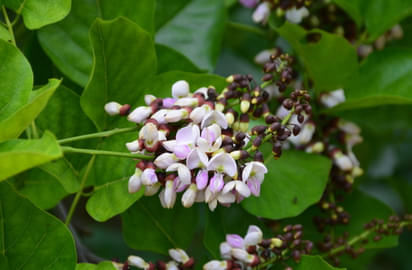Download App




Ayurveda is a holistic system of medicine that originated in India and is based on the idea that health and well-being are connected to the balance of the body, mind, and consciousness: What it is Ayurveda is a natural approach to health that uses lifestyle changes, nutrition, and herbal remedies to treat and prevent illness. The word Ayurveda comes from the Sanskrit words ayus, meaning life, and veda, meaning knowledge. How it works Ayurveda is based on the idea that each person has a unique combination of physical, mental, and emotional characteristics, called a constitution, that determines their health. Imbalances in these characteristics can lead to disease. What it treats Ayurveda can help with a variety of health issues, including reducing stress, increasing disease resistance, and reducing symptoms.
What is Ayurveda? Considered by many scholars to be the oldest healing science, Ayurveda is a holistic approach to health designed to help people live long, healthy, balanced lives. The term Ayurveda is taken from the Sanskrit words ayus, meaning life or lifespan, and veda, meaning knowledge.Ayurveda is a whole-body (holistic) system of medicine that began in India more than 3,000 years ago. Ayurveda means the study of life. It takes a natural approach to all aspects of health and well-being.


Ayurveda is a holistic system of medicine that originated in India and is based on the idea that health and well-being are connected to the balance of the body, mind, and consciousness: What it is Ayurveda is a natural approach to health that uses lifestyle changes, nutrition, and herbal remedies to treat and prevent illness. The word Ayurveda comes from the Sanskrit words ayus, meaning life, and veda, meaning knowledge. How it works Ayurveda is based on the idea that each person has a unique combination of physical, mental, and emotional characteristics, called a constitution, that determines their health. Imbalances in these characteristics can lead to disease. What it treats Ayurveda can help with a variety of health issues, including reducing stress, increasing disease resistance, and reducing symptoms.
What is Ayurveda? Considered by many scholars to be the oldest healing science, Ayurveda is a holistic approach to health designed to help people live long, healthy, balanced lives. The term Ayurveda is taken from the Sanskrit words ayus, meaning life or lifespan, and veda, meaning knowledge.Ayurveda is a whole-body (holistic) system of medicine that began in India more than 3,000 years ago. Ayurveda means the study of life. It takes a natural approach to all aspects of health and well-being.


Flowers have a significant place in Ayurveda, not only for their beauty but also for their therapeutic properties and symbolic meanings. Each flower carries unique qualities and health benefits, making them valuable in various Ayurvedic practices, including herbal medicine, rituals, and skincare. Medicinal Properties Many flowers are known for their medicinal properties. For example, Chamomile (Matricaria chamomilla) is revered for its calming effects, helping to alleviate anxiety and promote better sleep. Hibiscus (Hibiscus sabdariffa) is another notable flower, rich in antioxidants, which is often used to support heart health and regulate blood pressure. The petals of Lotus (Nelumbo nucifera) are used in Ayurvedic formulations for their cooling properties and ability to enhance skin health. Nutritional Benefits Flowers also contribute to nutrition in various forms. Rose petals (Rosa spp.) are commonly used in teas and syrups, known for their digestive benefits and ability to balance Pitta dosha. Marigold (Tagetes) is another flower that can be consumed; its petals are rich in vitamins and antioxidants, supporting overall health. Beauty and Skin Care In Ayurveda, flowers are frequently used in skincare formulations. Jasmine (Jasminum) is prized for its moisturizing properties and is often incorporated into oils and creams to enhance skin vitality. Rosewater, derived from rose petals, is widely used as a toner and soothing agent, making it suitable for all skin types. Additionally, floral infusions are commonly added to bath preparations for their aromatic and therapeutic effects. Rituals and Spiritual Significance Flowers play a vital role in Ayurvedic rituals and spiritual practices. They are often used in pujas (worship ceremonies) as offerings to deities, symbolizing purity and devotion. The fragrance of flowers is believed to elevate the mind and spirit, enhancing meditation and mindfulness practices.